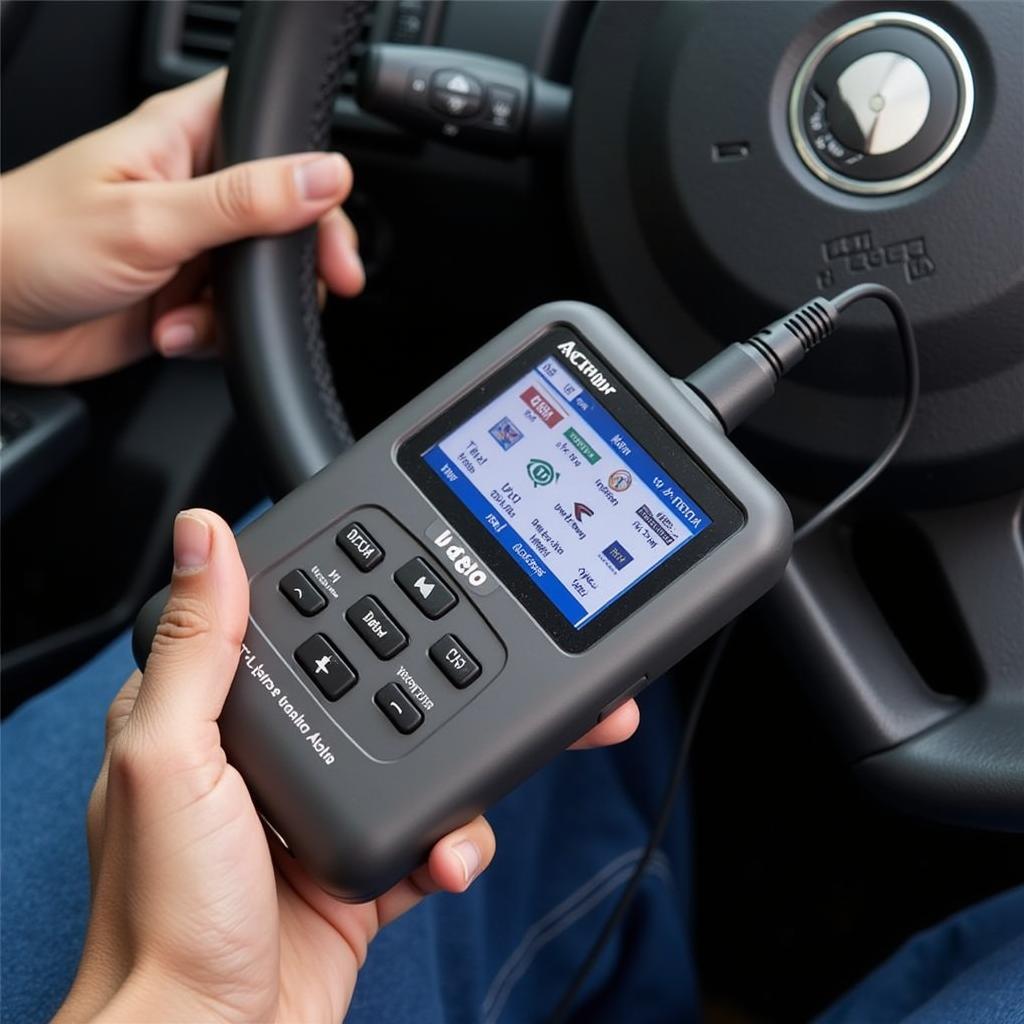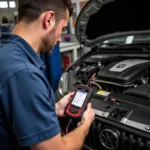The U480 car diagnostic scanner tool has gained popularity among car enthusiasts and DIY mechanics. But can this budget-friendly option truly hold its own against professional-grade OBDII and OBD2 scanners? This comprehensive guide dives deep into the U480’s capabilities, limitations, and ultimately helps you decide if it’s the right fit for your needs.
Understanding the U480 Car Diagnostic Scanner Tool
 U480 Car Diagnostic Scanner Tool Overview
U480 Car Diagnostic Scanner Tool Overview
The U480 is an entry-level OBD2 scanner designed for vehicle owners seeking a basic understanding of their car’s health. It connects to your car’s OBD2 port, typically located under the dashboard on the driver’s side, and retrieves diagnostic trouble codes (DTCs). These codes provide insights into potential issues affecting your engine, transmission, emissions system, and more.
Features of the U480 Diagnostic Scanner
The U480 scanner boasts a range of features designed to make car diagnostics accessible:
- Reads and Clears DTCs: Easily identify and clear both generic (OBDII/EOBD) and manufacturer-specific (OBD2) trouble codes.
- Live Data Stream: View real-time data from your car’s sensors, including engine RPM, coolant temperature, oxygen sensor readings, and more.
- Freeze Frame Data: Access a snapshot of your car’s sensor readings at the time a DTC was stored, helping pinpoint the root cause of a problem.
- I/M Readiness Monitor Status: Check your vehicle’s emissions system readiness for state inspections.
- Vehicle Information Retrieval: Retrieve your car’s VIN, CALID, and CVN for registration or other purposes.
Advantages of the U480 OBD2 Scanner
- Affordability: Compared to professional-grade scanners, the U480 comes at a fraction of the cost, making it ideal for budget-conscious users.
- Ease of Use: The U480 is plug-and-play, requiring no additional software or complex installations. Its simple interface and intuitive navigation make it user-friendly, even for beginners.
- Wide Vehicle Compatibility: The U480 supports a broad range of vehicles manufactured after 1996 that comply with OBDII/OBD2 protocols.
Limitations of the U480 Car Diagnostic Scanner
While the U480 offers valuable features at an attractive price point, it does have limitations compared to more advanced scanners:
- Limited Functionality: The U480 primarily focuses on engine-related diagnostics and may not offer comprehensive coverage for other vehicle systems like ABS, airbags, or climate control.
- Basic Live Data: While the U480 provides live data, it may lack the advanced graphing and data logging capabilities of professional-grade scanners.
- Absence of Bi-Directional Controls: The U480 primarily reads data and cannot execute bi-directional controls, which are necessary for certain diagnostic and component testing procedures.
Is the U480 Right for You?
The U480 car diagnostic scanner tool is an excellent choice for:
- Car Enthusiasts: For those who enjoy DIY car maintenance and want to diagnose basic engine-related issues, the U480 provides a valuable tool at an accessible price.
- Everyday Car Owners: The U480 empowers car owners to understand their vehicle’s health, clear minor DTCs, and potentially save on unnecessary trips to the mechanic for simple diagnostics.
However, professional mechanics or those requiring advanced diagnostic capabilities, such as bi-directional control or module coding, would benefit from investing in a higher-end professional-grade scanner.
Conclusion
The U480 car diagnostic scanner tool provides an entry point into the world of OBDII and OBD2 diagnostics. Its affordability, ease of use, and ability to read and clear DTCs make it a valuable tool for car enthusiasts and budget-conscious owners. However, it’s crucial to acknowledge its limitations compared to professional-grade scanners. Ultimately, the U480 serves as a practical solution for basic car diagnostics, empowering users to take control of their vehicle’s maintenance and gain a better understanding of its health.
